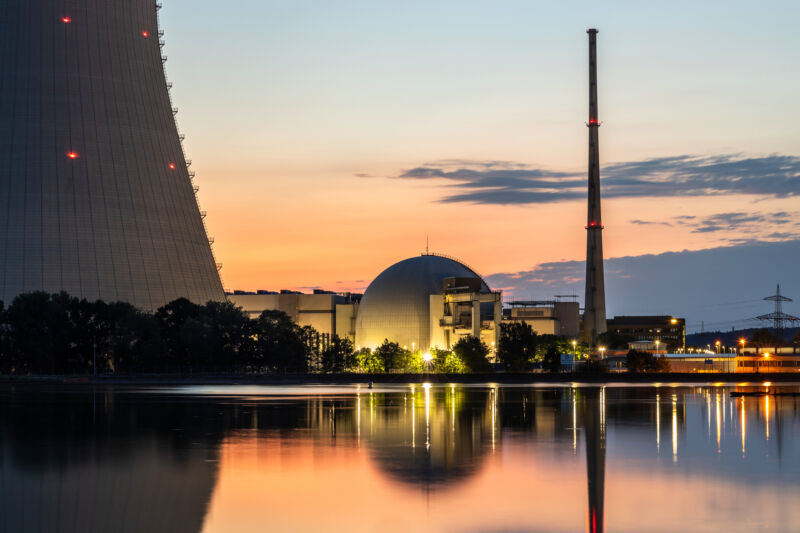
Enlarge / A German nuclear power plant, which is currently partially closed. (credit: Getty Images)
In 2011, in the wake of the Fukushima disaster, Germany decided to shut down all of its nuclear power. The process was supposed to have ended last year, but it has been extended in response to energy uncertainties caused by the war in Ukraine. As a result, even though renewable generation in Germany continues to climb, the country's carbon emissions have only trended down slowly.
While there's no indication that the US will follow Germany down this path—the Biden administration is actively subsidizing nuclear plants to keep them open—the economics of nuclear power have led to a number of plant shutdowns. It's currently the second-most expensive major source of power, just ahead of offshore wind, with the costs of wind continuing to drop. So there's a significant chance that nuclear's contribution to the US grid will shrink.
A new analysis shows that a drop in nuclear power on the current US grid will mean enough additional pollution to cause over 5,000 deaths each year, and the burden of those deaths will fall disproportionately on Black Americans. But on a future grid where renewables are present at sufficient levels to offset the loss of nuclear, almost all of these additional deaths can be avoided.
No comments:
Post a Comment